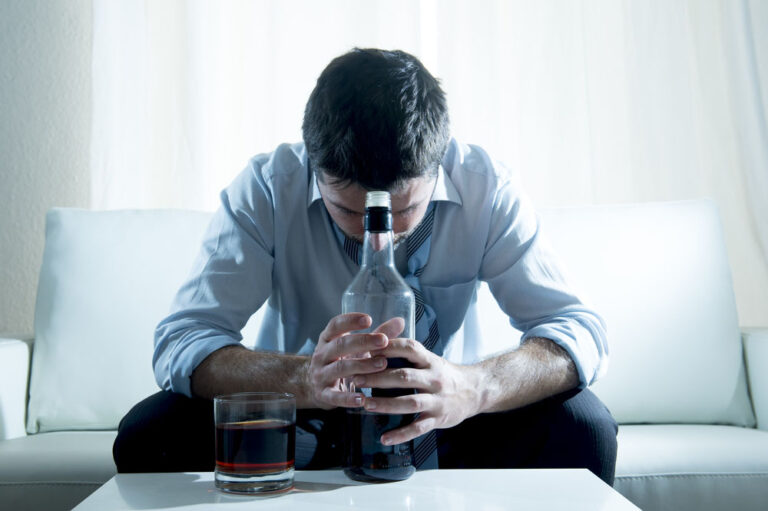Alcoholism Treatment During Self Quarantine
During times of crisis or heightened anxiety, coping mechanisms are key. For those of us who once relied heavily on substances or processes for comfort or control, the possibility of turning to what’s most familiar is also heightened. However, to do so would simply create another crisis.
The combination of the pandemic, its economic fallout and stay-at-home mandates mean conditions are tailor-made for drinking. Loneliness and isolation are triggers for alcohol abuse. People who are dependent on 12-step meetings are conflicted at this time, asking themselves if there are dangers in attending their normal meetings or if it’s more dangerous to stay isolated.
Along with the risks of isolation while struggling with addiction, domestic abuse rates are at a high right now.
“We know lockdowns and quarantines are essential to suppressing COVID-19, but they can trap women with abusive partners,” United Nations Secretary-General António Guterres said. “Over the past weeks, as the economic and social pressures and fear have grown, we have seen a horrifying surge in domestic violence.”
These troubling facts can create a perfect storm for many to panic during this troubling time. But how does one keep faith when there is so much fear?
Well, it is first necessary to understand that fear is an abstract concept. To choose faith over fear is about choice and perspective. Yet, the choice to have faith doesn’t mean we spiritually bypass the emotion of fear. Spirituality and religion can be addictive processes too if we use them as ways to avoid rather than address our woundedness. So, instead of substituting addiction, we use the opportunity to transmute fear into faith.
By allowing the feelings to surface and experiences to simply be, we are exercising faith. Instead of trying to numb the emotions, silence the thoughts or find a way to control through distractions, substances or processes, we permit them and trust the process. And, most importantly, we love, not shame, ourselves through it.
So, how do we keep the faith and stay sober through the crisis or heightened anxiety?
Choose Your Perspective Wisely
Rather than viewing something as a crisis, we can choose the lens of faith over fear and see it as an opportunity. What does the experience stand to teach us? How can it heal us? What is the experience asking us to do on a deeper level? In other words, on a spiritual level, is the experience asking us to disconnect? Or is it presenting an opportunity to see that we are all connected? Are we possibly being shown our purpose?
There are many questions and just as many answers, but the one truth is love. So, as long as the answer is from love and not fear, it’s our truth.
Remember Recovery is Not Simply Sobriety
Another key perspective here. Recovery is a much deeper process than simply maintaining sobriety. Believe it or not, sobriety is the easy part. Anyone in active addiction will tell you they’ve been sober multiple times. However, that is likely a momentary experience if maintaining sobriety was considered the main goal.
Unlike sobriety, recovery requires us to dig deep into our conditioning—the ways in which we are programmed to respond to the world—and find the origin of our fear-based response to self-medicate. It asks us to face the traumas and painful experiences in which we learned or formulated these responses in an effort to survive.
Sit, Stay, Heal
Sitting with whatever surfaces—feelings, thoughts and experiences—and staying present is something active addiction fully prevents. As such, the conditioning and fear-based responses continue as we reenact the traumatizing experiences of our childhood.
If we gently encourage ourselves to sit with the pain or discomfort of the situation, stay in the moment, and allow the fullness of the feelings and experiences to surface, we honor and acknowledge our truth. In doing so, we are sitting with our wounded inner child, being aware of and validating their experience, and being available for their need to reveal and heal the wounds.
Utilize Medicine, Not Poison
True medicine first does no harm. As such, we do not want to choose anything that will further harm our bodies, minds or spirits. Instead, we can look to music, journaling, recovery meetings (virtual, if needed), calls to sponsors, trusted friends, laughter and acts of self-care to soothe without distracting or numbing. We can also call on the professional assistance of counselors, therapists, life and spiritual coaches to facilitate the needed healing while teaching healthy coping and soothing techniques.
And all this unfamiliar but needed intervention can be employed because of tough times.
All the while, we refrain from judging or shaming the itch or any accompanying experience. We, instead, trust the process and ourselves while having faith that this too, just like an itch, shall pass. And we continue to hold or keep that faith.
Where You Can Seek Help for Addiction
If you or a loved one has realized they finally need to seek addiction treatment, or you need some help to persuade them, give Shadow Mountain Recovery a call today. We have experienced staff that can help combat addiction to any drug, and we specialize in holistic treatment to treat the mind, body, and spirit.
If you or a loved one needs detoxification of alcohol or an individualized treatment plan to help with addiction, call Shadow Mountain Recovery today: (855) 700-1667









